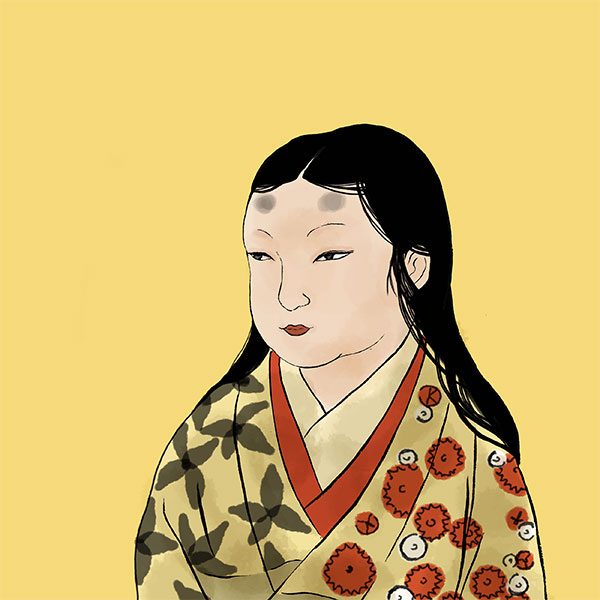Tsukiyama-dono (Sena Hime) (1/2)What was the final moment of Tokugawa Ieyasu's legal wife?

Tsukiyama-dono (Sena Hime)
- Article category
- biography
- name
- Tsukiyama-dono (Princess Sena) (year of birth unknown - 1579)
- place of birth
- Shizuoka Prefecture
- Related castles

Sunpu Castle

Okazaki Castle

Hamamatsu Castle
During the Sengoku period, people tend to focus on the activities of military commanders. However, depending on their lineage, position, and talent, women were sometimes as active as their husbands and left their mark. Even if they did not appear on the battlefield, they exerted their influence at their place of marriage. One of the few women who left her name behind is Tsukiyamadono. She married Tokugawa Ieyasu when he was still Matsudaira Motonobu, and although she gave birth to her first son, she was murdered. What kind of woman was she?
Birth of Tsukiyamaden
It is said that her father was Chikanaga Sekiguchi (also known as Ujisumi), and her mother was Yoshimoto Imagawa's aunt and sister, and if she were Yoshimoto's sister, Tsukiyama-dono would have been Yoshimoto's niece. It is said that she was about two years older than her future husband, Tokugawa Ieyasu, or at least about the same age.
Her mother is said to have been the daughter of Naohei Ii in the genealogies of ``Ii Nenfu,'' ``Keizu Compilation,'' and ``Iie Koran,'' who first became Yoshimoto Imagawa's concubine and later married Chikanaga as his adopted sister. I am. If this story is true, Naomori Ii is his cousin, and Naotora Ii is his niece.
In current taiga dramas, Tsukiyama-dono often appears under the name ``Sena Hime,'' but as there is no record of the name Sena Hime, there are still some uncertainties regarding this name.
The same goes for the year of his birth, which is not clear at this point. A common theory is that he was born between the 8th year of Tenbun (1539) and the 9th year of Tenbun (1540).
Tsukiyama-dono's marriage and childbirth
Tsukiyama-dono married Motonobu Matsudaira (later Tokugawa Ieyasu), who had been kept in Sunpu as a hostage of the Imagawa family, on the 15th day of the first month of the 3rd year of Koji (1557). Tokugawa Ieyasu was also the lord of Okazaki Castle in Mikawa Province, and Yoshimoto Imagawa had a plan to maintain control over Mikawa Province by forming a marriage relationship with Tsukiyama-dono, his blood relative.
Tsukiyama-dono gave birth to her eldest son, Nobuyasu Matsudaira, in 1559, and then gave birth to her eldest daughter, Kamehime, in 1560. As the legal wife, she will give birth to an heir and solidify her position.
Tsukiyama-dono became his legal wife and gave birth to his eldest son, Nobuyasu, but the relationship between the two was never good.
Because Ieyasu was in the position of being a hostage of the Imagawa family, and above all because Tsukiyama-dono was a relative of the Imagawa family, there was a tendency for Tsukiyama-dono to look down on her husband, Ieyasu, and Ieyasu put up with this attitude. It is said that the relationship between us has turned cold. On the other hand, Ieyasu had many concubines throughout his life.
change of position
On May 19, 1560, the Battle of Okehazama occurred, and Tsukiyama-dono's uncle, Yoshimoto Imagawa, was killed. With his master defeated, Ieyasu returned to Okazaki.
To make matters worse, in March 1562, Tsukiyama-dono's father, Chikanaga, made an alliance with his son-in-law, Ieyasu, and Oda Nobunaga, which angered Ujizane Imagawa, and together with his legal wife, I committed suicide.
Tsukiyama-dono was created by Kazumasa Ishikawa who came to Suruga, persuaded Ujizane Imagawa, and exchanged hostages with Udono Ujigawa, Udono Ujitsugu, and Tsukiyama-dono's mother and son. I moved to Okazaki.
However, he did not live inside Okazaki Castle, but at a temple outside the castle, around the current Saibankji Temple. The honorific title for Tsukiyama-dono in the "Ietada Nikki" was not "Gozen-sama," which refers to his legal wife, but "Nobuyasu Mother," which indicates that Tsukiyama-dono was divorced at this point due to a separation from the Imagawa clan. It is also said that
In 1567, his son Nobuyasu and Oda Nobunaga's eldest daughter Tokuhime entered into a political marriage at the age of nine.
When Nobuyasu was moved to Okazaki Castle as his legitimate son in 1570, Tsukiyama-dono also moved to Okazaki Castle as Nobuyasu's biological mother.
At that time, Ieyasu did not pay any attention to his legal wife, Tsukiyama-dono, and his relationship only deepened with his concubines. Among the concubines was a woman named Oman, Tsukiyama-dono's maid, and when Tsukiyama-dono learned that she was pregnant with Ieyasu's child, he became furious. There is also a story that a pregnant woman was stripped of her clothes and chased around the garden while being beaten with a whip.
Ieyasu had many concubines, including women from low-ranking townspeople and daughters of lower-ranking samurai, and it is said that this was meant for Tsukiyama-dono.
Tsukiyamaden’s position is getting worse
Ieyasu rarely visited Okazaki Castle, where Tsukiyama-dono moved, and lived with Ieyasu's mother and Oda Nobunaga's daughter Tokuhime, who had married Nobuyasu Tokugawa. At that time, Tokugawa Ieyasu spent most of his time there after acquiring Hamamatsu Castle, and conversely did not visit Okazaki Castle. While Tsukiyama-dono didn't have a husband to live with, her surrounding vassals and second daughter were full of enemies that she could never trust. To add insult to injury, not only were Tsukiyama-dono's parents murdered at the hands of Ujima Imagawa, but her husband, Ieyasu, was having children every year with his concubines at Hamamatsu Castle. There was no way that Tsukiyama-dono could stand either as his legal wife or as the backing of his family.
As Tsukiyama-dono's position gradually weakened, his only hope was his son and eldest son, Nobuyasu.
On the other hand, he did not like Tokuhime, Nobuyasu's legal wife. Tsukiyama-dono was said to have treated Tokuhime, the daughter of Oda Nobunaga, who killed his uncle Imagawa Yoshimoto, as his enemy, and treated her coldly on a regular basis.
Moreover, since Nobuyasu and Tokuhime had only two girls and no legitimate son was born, he not only takes offense at Tokuhime, but also has her son Nobuyasu as a concubine. I recommend that. To make matters worse, his concubine was the daughter of Masatoki Asahara, a vassal of the Takeda family, the Oda family's sworn enemy. In fact, Nobuyasu favored his concubine, which caused a major rift in his marital relationship with Tokuhime.
Tokuhime is the eldest daughter of Nobunaga Oda and his concubine Ikoma. Ikoma was very much loved by Nobunaga, and Tokuhime is said to have grown up loved by her father, Nobunaga. Like Tsukiyama-dono, she was a woman with a lot of pride and no patience.
Tokuhime, angered by Tsukiyama-dono's repeated harassment, resorts to complaining to her father, Oda Nobunaga, about her dissatisfaction with Nobuyasu Tokugawa and Tsukiyama-dono, including exaggerating them.
At this time, Tokuhime wrote about her husband Nobuyasu's misdeeds and Tsukiyama-dono's actions in a series of emotional notes, and ended up saying, ``Nobuyasu and Tsukiyama-dono betrayed their father Nobunaga and had secret affairs with the Takeda family.'' He even sent it to me with a message saying, ``I'm doing it.'' After Tokuhime's maid said that she had seen a secret letter sent from Katsuyori Takeda to Tsukiyama-dono, Tokuhime claimed that Tsukiyama-dono was secretly communicating with Takeda Katsuyori.
The end of Tsukiyamaden
In the 7th year of Tensho (1579), there were 12 reports, including that Tsukiyama-dono made false statements about Tokuhime to Nobuyasu, that Tsukiyama-dono had secret communication with the Chinese doctor Sekkei, and that there was secret communication with the Takeda family. Nobunaga was furious because he sent a complaint consisting of articles to Nobunaga. It is said that this complaint triggered Nobunaga to order Ieyasu to execute his eldest son, Nobuyasu.
The article about Tsukiyama-dono (Sena Hime) continues.

- WriterTomoyo Hazuki(Writer)I have loved history and geography since my student days, and have enjoyed visiting historical sites, temples and shrines, and researching ancient documents. He is especially strong in medieval Japanese history and European history in world history, and has read a wide range of things, including primary sources and historical entertainment novels. There are so many favorite military commanders and castles that I can't name them, but I especially like Hisashi Matsunaga and Mitsuhide Akechi, and when it comes to castles, I like Hikone Castle and Fushimi Castle. Once you start talking about the lives of warlords and the history of castles, there's a side of you that can't stop talking about them.





